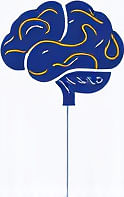Goal Tracking Apps for ADHD in Remote Work
 by Shanie Goodwin
by Shanie Goodwin
Discover how goal tracking apps can support adults with ADHD in remote settings, offering practical strategies for better focus and balance. Learn tips to integrate these tools into daily routines for improved productivity and well-being.
Many adults with ADHD face unique challenges in remote work environments, where distractions can easily disrupt focus and make it hard to stay on track. Using goal tracking apps provides a straightforward way to manage tasks and build routines that promote productivity.
These apps offer features like reminders and progress visuals, which help break down overwhelming projects into smaller, achievable steps. For instance, setting daily goals through an app can reduce the mental load that often accompanies ADHD.
One effective approach is to select apps with customizable notifications. This allows users to set alerts at specific times, ensuring important tasks get attention without causing overload. In remote work, where schedules vary, this flexibility is key for maintaining a healthy work-life balance.
Choosing the Right App
When exploring options, consider apps that allow for visual progress tracking. This method turns abstract goals into concrete visuals, making it easier to see advancements and stay motivated. For example, apps with habit-building tools can help establish consistent work patterns.
Start by identifying personal needs, such as the need for quick task entry or integration with calendars. Many apps support these functions, enabling seamless incorporation into daily life. This personalization helps address common ADHD traits like difficulty with planning.
Practical Hacks for Daily Use
Incorporating apps into routines requires simple adjustments. Begin each day by reviewing goals in the app, which sets a clear path for the workday. This practice fosters a sense of control and reduces anxiety often linked to unstructured remote settings.
Use features like timed sessions to manage focus periods. For adults with ADHD, shorter bursts of work followed by breaks can enhance concentration and prevent burnout. Pairing this with app-based rewards, such as virtual badges, adds an element of fun to task completion.
Another helpful strategy is sharing progress with a trusted colleague or friend. Some apps include sharing options, which can build accountability without adding pressure. In remote work, this connection combats isolation and supports overall well-being.
Overcoming Common Obstacles
Distractions at home can interfere with app use, so creating a dedicated workspace is essential. Position the app as a central tool in this space to minimize interruptions and maintain flow. For those with ADHD, combining apps with physical planners can reinforce digital tracking.
It's also important to adjust app settings based on energy levels. If mornings are more productive, schedule key reminders then to align with natural rhythms. This adaptation ensures the tool works in harmony with individual patterns, promoting sustainable habits.
Building Long-Term Habits
Over time, consistent use of these apps can lead to lasting improvements in productivity. Track changes in work output to see the benefits, which might include completing tasks ahead of schedule or feeling less overwhelmed. For adults in remote roles, this means more time for personal interests and relaxation.
Encourage experimentation with different apps to find the best fit. Options vary in simplicity and features, allowing users to select based on preferences. Once a favorite is found, integrate it into weekly reviews to refine goals and celebrate successes.
In remote work, balancing professional demands with personal health is crucial. Apps that track both work and leisure goals help achieve this equilibrium, ensuring neither area is neglected.
Tips for Integration
- Prioritize apps with easy interfaces to avoid frustration.
- Set realistic goals to build confidence and avoid discouragement.
- Review progress weekly to adjust strategies as needed.
By focusing on these elements, adults with ADHD can turn goal tracking into a reliable ally. The key is to approach it with patience and self-compassion, recognizing that progress comes step by step.
Ultimately, these tools support not just productivity but also a fuller, more balanced life in remote settings.
